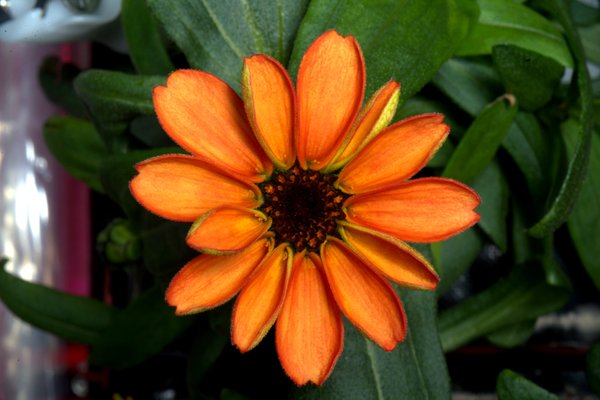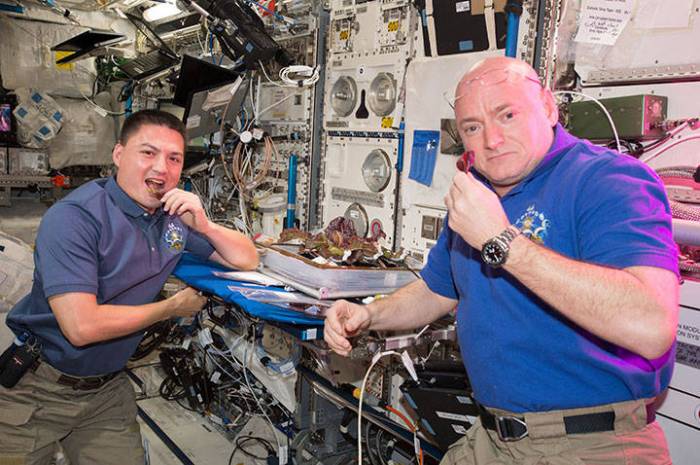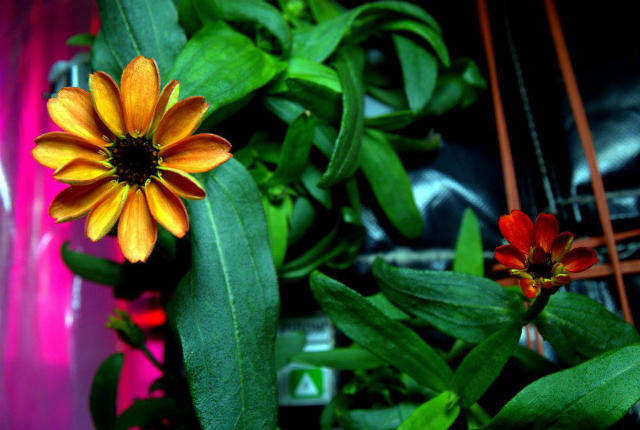
source
NASA astronaut Scott Kelly, who is working for an entire year on the International Space Station (ISS), shared something amazing. For almost two years now, the astronauts on the ISS have been attempting to grow edible plants in microgravity. The first few attempts failed. But this week, Kelly tweeted a picture of flowers growing in space.
First ever flower grown in space
Kelly shared this photo with his 817,000 Twitter followers with the caption:
“First ever flower grown in space makes its debut! #SpaceFlower #zinnia #YearInSpace.”
He had been tending to these flowers for a while. In December, he shared that they had grown mold because of high humidity, stating that it would be a problem on Mars. He worked hard to bring them back to life until they blossomed into these beautiful, vibrant, and edible flowers.

A lot has been learned
A lot has been learnt from the Veggie plant growth facility, nicknamed the “Veggie” project. Gioia Massa, the science team lead for the project, said that the plants did not grow perfectly:
“I think we have gained a lot from this, and we are learning both more about plants and fluids and also how better to operate between ground and station. Regardless of final flowering outcome we will have gained a lot.”
The growth facility was added to the ISS in May 2014. The first crop was red romaine lettuce. In the first cycle, two plants were lost to stress. Kelly worked on the second growth cycle, which turned out to be much better than the previous one. The crew was able to harvest and eat the crop. Zinnia flowers were chosen as the next experiment. This proved to be harder than growing the lettuce.
“Growing a flowering crop is more challenging than growing a vegetative crop such as lettuce,” Massa said. “Lighting and other environmental parameters are more critical.”
Figuring out how to grow the zinnia helped the team learn more about how plants flower in the Veggie growth facility. In addition, it will help pave the way for fruiting plants like tomatoes.

We are a small step closer to Mars
Kelly explained that the ISS has been experimenting with growing produce – it could help lead to a trip to Mars one day.
“We’re going to have to have a spacecraft that is much more self-sustainable with regards to its food supply. There’s going to be a long period of time when we’re going to have to be completely self-sufficient,” he said.
Massa agreed:
“The farther and longer humans go away from Earth, the greater the need to be able to grow plants for food, atmosphere recycling and psychological benefits. I think that plant systems will become important components of any long-duration exploration scenario.”

SEE ALSO: A NASA Spacecraft Flies By Pluto For The First Time In History.







